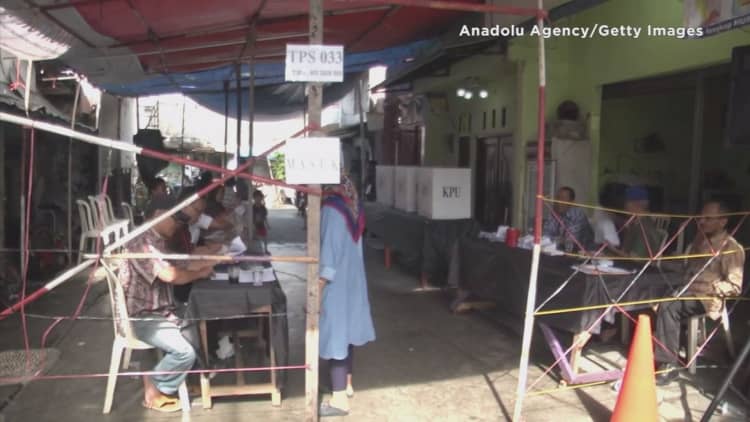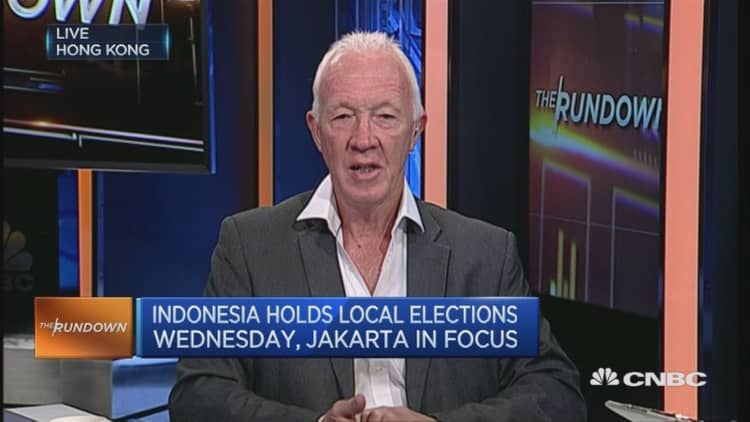
Jakarta, one of the world's most populous metropolises, will choose a new governor on Wednesday in a fevered election marked by mass demonstrations, fake news and even the Islamic State.
At stake is an expanding wave of Muslim radicalism, a slower pace of structural reforms, a hit to business confidence and political gridlock that may derail Indonesia — Southeast Asia's largest economy and a favorite of emerging market investors.
The facts
7.2 million registered voters will pick one of three candidates to a five-year term.
Incumbent governor Basuki Tjahaja Purnama—known as Ahok—of the ruling Indonesian Democratic Party of Struggle is running for a second stretch. He's facing Agus Harimurtri Yudhoyono, son of ex-president Susilo Bambang Yudhoyono, of the Democratic Party and former minister of education and culture Anies Baswedan from the opposition Gerindra party.
Indonesia's capital city is one of 101 regions holding city, provincial and district elections on Wednesday but its race is the most significant as the job of Jakarta governor is viewed as a stepping stone to the presidency.
If nobody secures more than 50 percent of the vote on Wednesday, a run-off election between the top two candidates will be held in April.
Official results are expected next week but early numbers will be out after polls close on Wednesday, according to Ho Woei Chen, senior economist at United Overseas Banking.
The key issue
Ahok, a Christian of Chinese ethnicity in the world's largest Muslim-majority nation, was accused of insulting Islam in a speech last year, sparking a series of protests by hard-line groups.
Ahok, an ally of President Joko Widodo, now faces blasphemy charges, with a trial verdict due in March. "Various reports suggest conviction for blasphemy, which comes with a jail term of up to five years, is likely. In that event, his hold to the office will be precarious even if he wins the election," said Ho.

Still, Ahok's popularity remains intact. A survey conducted between Feb. 2 and Feb. 8 by Indikator Politik Indonesia revealed the 50-year old was in the lead, with 39 percent support, followed by Anies' 35.3 percent and Agus' 19.4 percent.
Ahok is certain to clinch the most votes on Wednesday but he may be unable to secure 50 percent, making a run-off more than likely, Achmad Sukarsono, Indonesia analyst at Eurasia, said in a recent note.
But it's not clear who can challenge Ahok in the run-off, Sukarsono continued. "Both Yudhoyono and Baswedan are American-educated, moderate Muslims who have little choice but to ride the wave of Islamic populism to compete with Ahok."
Consequences
Religious politics could distract lawmakers from implementing long-anticipated policies aimed at easing government bureaucracy and loosening investor regulations, experts fear.
Widodo, also known as Jokowi, has worked hard to gain political support from powerful officials, such as retired army general Prabowo Subianto, but these relationships may change and impact the President's reform agenda, depending on the Jakarta election outcome, said Citi economist Helmi Arman.
Business leaders and participants in Jokowi's tax amnesty program, are also becoming increasingly cautious, which could continue even after Ahok's trial verdict, Arman added.

